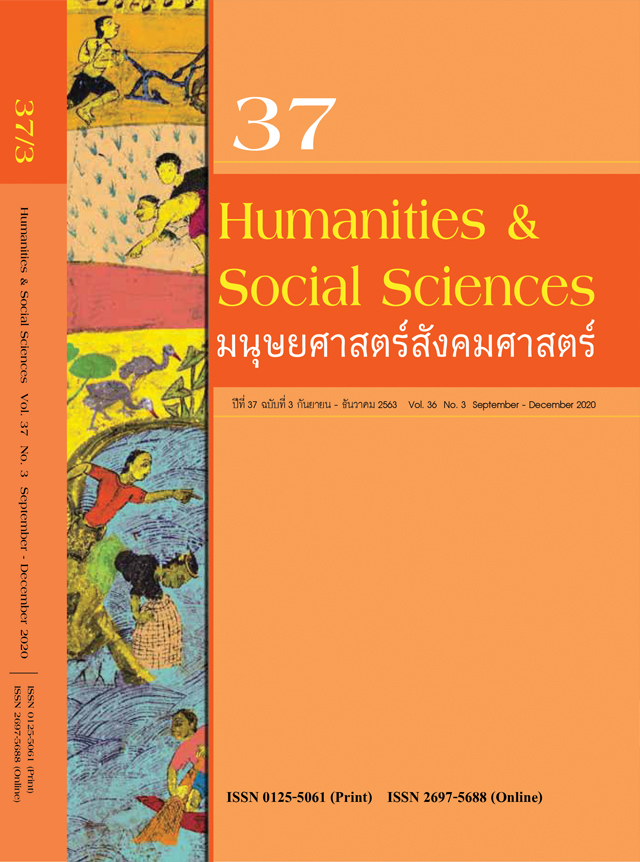รูปแบบคำเรียกขานและคำอ้างถึงตนเองของผู้ซื้อและผู้ขายเครื่องสำอางในสื่อสังคม
Forms of address terms and terms of self-reference of cosmetic products’ purchasers and sellers in social media
Keywords:
address terms, terms of self-reference, purchasers, sellers, social mediaAbstract
Abstract
Qualitative research is in the field of Sociolinguistics. It aims to study the forms of address terms and terms of self-reference used by purchasers and sellers on Facebook pages of cosmetic shops and to compare those forms used by purchasers and sellers of the 3 different levels of the cosmetics brands: upper level, middle level, and low level. The data were collected from 9 cosmetic Facebook pages selected by the sample’s opinion survey. The results show that there are 13 forms of address terms and 5 forms for the terms of self-reference used by purchasers and sellers. However, the number of those forms used by the sellers is higher than those used by the purchasers. Comparing the forms of address terms and terms of self-reference used by purchasers and sellers from all 3 levels of cosmetics brands, the omission is the most found form. This form is used by the purchasers more than the sellers. It can be said that the usages of the names of purchasers mentioned by a tag and the word “ad” or “admin” are unique to the online communication of the Facebook application.
Keywords: address terms, terms of self-reference, purchasers, sellers, social media
References
นันทนา วงษ์ไทย. (2552). คำอ้างถึงตนเองของผู้หญิงกับคู่สนทนาที่ไม่คุ้นเคย. The Journal, 5(2), 121-136.
ภูมิใจ บัณฑุชัย. (2549). คำเรียกขาน คำบุรุษสรรพนามที่ 1 และ คำบุรุษสรรพนามที่ 2 ของผู้ขายในห้างสรรพสินค้า. วิทยานิพนธ์ศิลปศาสตรมหาบัณฑิต สาขาวิชาภาษาศาสตร์ประยุกต์
มหาวิทยาลัยเกษตรศาสตร์.
สถาพร วัฒนธรรม. (2544). การใช้คำเรียกขานของผู้ประกอบการค้า. วิทยานิพนธ์ศิลปศาสตรมหาบัณฑิต สาขาวิชาภาษาศาสตร์ มหาวิทยาลัยธรรมศาสตร์.
Brown, R. & Gilman, A. (1960). The pronouns of power and solidarity. Sebeok, T. A. (ed.). Style in language, pp. 252–276. Cambridge: MIT Press.
Labov, W. A. (1972 a). The social stratification of (r) in New York City department stores. In Labov, W. A. (ed). Sociolinguistic patterns. Philadelphia: University of Pennsylvania Press.
Labov, W. A. (1972 b). Sociolinguistic patterns. Philadelphia, PA: University of Pennsylvania Press.
Social media อันดับ 1 ที่คนไทยใช้กัน. สืบค้นเมื่อวันที่ 15 มีนาคม 2563, จาก https://www.bullvpn.com/th/blog/detail/top-social-media-thailand-2019



